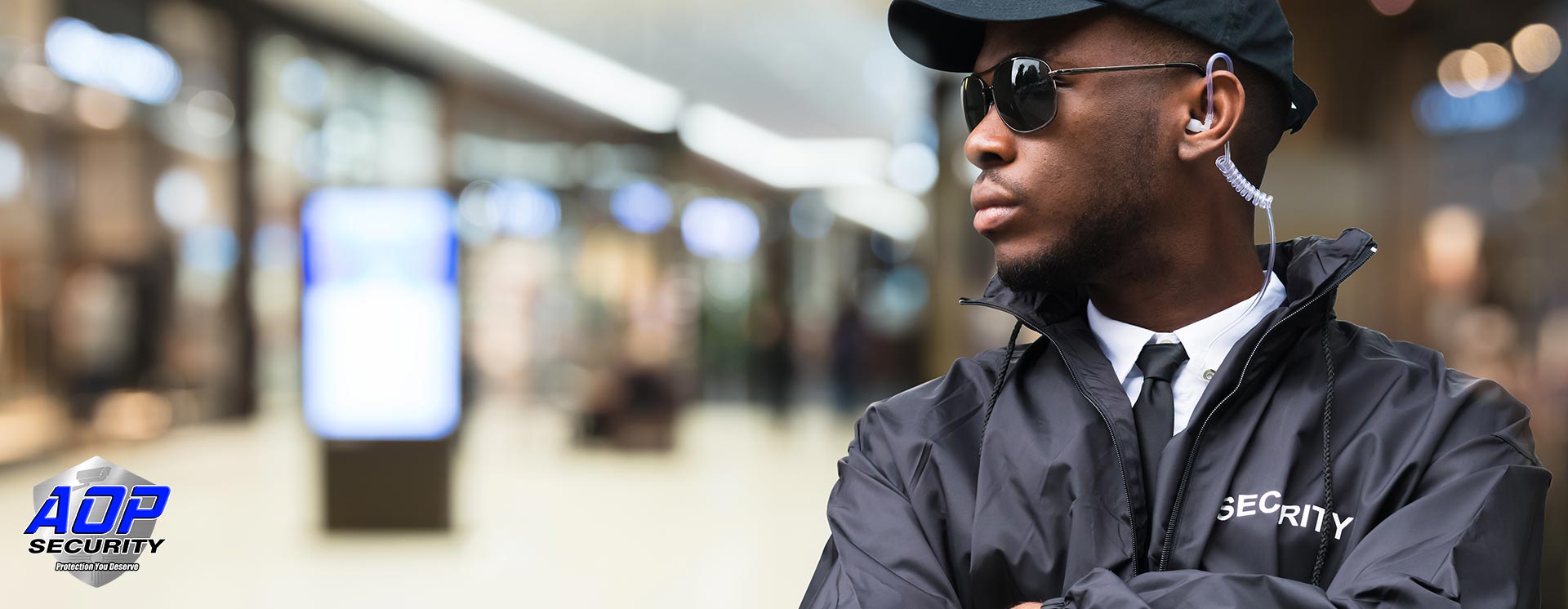
The Evolution of Commercial Security: Trends to Watch in 2024
November 12, 2024 10:38 pm Leave your thoughtsCommercial security has become paramount in a world where business operations are increasingly complex and cyber and physical threats are on the rise. Every year, advancements in technology and strategies reshape the industry, bringing new ways for companies to protect their assets, employees, and customers. The year 2024 is no exception, with significant trends in commercial security emerging that promise to enhance both safety and operational efficiency. Here, we’ll explore the critical developments in commercial security and what businesses should consider as they plan their security strategies for the coming year.
The Rise of Artificial Intelligence (AI) and Machine Learning in Security
AI-driven Surveillance and Monitoring
Artificial intelligence is fundamentally transforming security operations, especially in surveillance. AI-enabled cameras and monitoring systems are increasingly used to detect unusual behavior, manage access points, and spot potential threats in real time. These systems use machine learning algorithms to adapt to their environment, becoming more accurate over time. They can differentiate between routine movements and suspicious activities, reducing the likelihood of false alarms while ensuring security personnel are notified of genuine threats.
Predictive Security with Machine Learning
Machine learning can analyze past security events and trends to predict potential security issues. By identifying patterns in previous incidents, machine learning models help security teams anticipate potential threats, enabling them to respond proactively. This type of predictive security will be especially useful for large facilities or enterprises that need to track high volumes of data to maintain security.
Integration of IoT and Smart Devices in Security
The Growth of IoT in Commercial Security
The Internet of Things (IoT) is reshaping how businesses manage security by enabling the integration of smart devices, sensors, and other connected technologies. In 2024, businesses are expected to adopt IoT solutions for access control, intrusion detection, and perimeter security at a higher rate than ever before. For instance, IoT-enabled locks, cameras, and alarms allow for remote monitoring and control, which is particularly valuable for businesses with multiple locations or extensive facilities.
Real-time Data Collection and Analytics
One of the most significant advantages of IoT in commercial security is its ability to collect real-time data and provide actionable insights. These devices continuously monitor environmental changes, such as motion or temperature variations, and trigger alerts if something seems unusual. Furthermore, IoT systems allow for easy integration with other security technologies, creating a more holistic security system.
Enhanced Cybersecurity Measures for Physical Security Systems
The Convergence of Physical and Cyber Security
With physical security systems increasingly connected to corporate networks, cybersecurity is now inseparable from commercial security. Modern access control systems, security cameras, and monitoring tools often operate on a network and are thus vulnerable to cyber threats. In 2024, businesses are expected to adopt stronger cybersecurity practices to protect their physical security systems. This includes securing networks, encrypting data, and using advanced authentication measures.
Adoption of Zero Trust Security Models
A prominent cybersecurity trend spilling into commercial security is the Zero Trust model. This approach assumes that every device or individual within a network could potentially be a threat, requiring verification for access to any part of the system. For commercial security, this could mean implementing multi-factor authentication for accessing security data or monitoring systems and enforcing strict policies for device access.
Remote Security Management and the Shift to Cloud-Based Solutions
Cloud-Based Security Solutions
The move to cloud-based solutions in commercial security has been gaining momentum, and in 2024, it is set to become a standard. Cloud-based security solutions enable businesses to monitor their premises remotely and access security footage or data from any location. They also allow for automatic updates, making it easier for companies to stay up to date with the latest security features and protocols.
Remote Access and Control
Remote security management is highly beneficial for organizations with multiple sites. Cloud solutions allow companies to monitor several locations from a single control center, enhancing efficiency and reducing costs. This trend is particularly relevant as businesses seek flexible solutions that can scale with their operations and accommodate remote work.
The Role of Drones and Robotics in Commercial Security
Security Patrol Drones
Drones are increasingly being used in commercial security for tasks like patrolling large premises, inspecting hard-to-reach areas, and monitoring large crowds. Equipped with high-resolution cameras, thermal imaging, and GPS tracking, drones can provide real-time footage of an area without requiring security personnel to be physically present. For large facilities, this means faster response times and the ability to assess potential threats from a safe distance.
Robotic Security Guards
Robotic security guards are another emerging trend that’s expected to gain traction in 2024. These robots are equipped with sensors and cameras, and they can autonomously patrol a location, detect anomalies, and even communicate with human security teams if needed. Robotic security guards are particularly useful in environments where continuous patrolling is necessary, such as warehouses, parking garages, and manufacturing plants.
Biometric and Facial Recognition Systems for Access Control
Growing Use of Biometric Authentication
Biometric authentication, such as fingerprint scanning, facial recognition, and retinal scans, is becoming more common in commercial security for access control. These methods offer a higher level of security than traditional keycards or passwords, as they rely on unique physical characteristics that are difficult to replicate. Businesses are using biometric systems for controlling access to restricted areas, ensuring only authorized personnel can enter sensitive areas.
Facial Recognition for Security and Surveillance
Facial recognition technology is being integrated into surveillance systems to monitor premises more effectively. For instance, facial recognition can identify individuals on a watch list and alert security personnel in real time. Despite some privacy concerns, facial recognition technology has become more accepted in commercial security, especially for areas that require high levels of security.
Increased Demand for Physical Security Personnel with Specialized Skills
More Stringent Training Requirements
The demand for skilled security personnel is growing, and in 2024, businesses are placing more emphasis on hiring personnel with specialized training. Security companies are now investing in advanced training programs, covering areas such as cybersecurity awareness, handling high-tech security equipment, and managing AI-based surveillance tools. These programs are crucial as commercial security becomes more complex and technology-driven.
Hybrid Security Teams: Combining Human and Technological Assets
As businesses increasingly rely on technology for their security needs, hybrid security teams—comprising human personnel supported by advanced technology—are becoming more common. Security guards are often trained to operate drones, manage biometric systems, and use AI-based analytics platforms. These hybrid teams allow for a more comprehensive security approach, blending the adaptability of human personnel with the precision of technology.
Enhanced Focus on Data Privacy and Compliance
Balancing Security with Privacy
With advanced security comes the need for responsible data handling. In 2024, businesses are expected to emphasize privacy when implementing commercial security systems. Regulations, such as the General Data Protection Regulation (GDPR) and California Consumer Privacy Act (CCPA), require companies to handle personal data responsibly. As a result, commercial security solutions must be designed to prioritize data protection, ensuring that security measures do not infringe upon privacy rights.
Increased Compliance Standards for Security Systems
Compliance with industry standards is becoming a key component of commercial security. Businesses are now required to follow stringent security protocols to protect customer and employee data. This is particularly important in highly regulated industries, such as healthcare and finance, where sensitive data is regularly processed. Meeting these compliance standards involves securing access points, encrypting data, and conducting regular security audits.
The Shift Towards Proactive Security Solutions
Proactive Threat Detection and Prevention
The focus of commercial security is gradually shifting from reactive to proactive solutions. With advancements in technology, businesses can now identify and mitigate risks before they escalate into major security incidents. Proactive security involves using AI and analytics to monitor potential threats, addressing vulnerabilities in security systems, and implementing preventative measures. This approach is expected to reduce the likelihood of incidents and create a safer business environment.
Incident Management and Rapid Response
Modern commercial security solutions are designed to respond quickly to security breaches or incidents. Real-time incident management allows security teams to react swiftly, minimizing potential damage and preventing further breaches. Automated alerts and AI-driven monitoring help companies respond to issues in real-time, ensuring that any security threats are addressed promptly.
The Future of Commercial Security: Embrace Innovation Today
The trends shaping commercial security in 2024 point towards a future where technology and human expertise work together to create a safer and more secure environment for businesses. From AI and IoT integration to robotic patrols and enhanced data privacy measures, businesses have access to a range of innovative solutions that can transform their approach to security.
As commercial security continues to evolve, partnering with a trusted security provider can help ensure that your business stays at the forefront of these changes. At Advance On-Site Protection Security, we offer cutting-edge security solutions designed to meet the unique needs of every business. From well-trained security personnel to advanced monitoring systems, our team is committed to providing top-tier protection for businesses across Albuquerque, NM, and beyond. To learn more about our services or to schedule a consultation, contact us at 505-897-1307.
Stay ahead of security challenges, and let us help you build a safer future.
Categorised in: Building Security
This post was written by AOP Security
